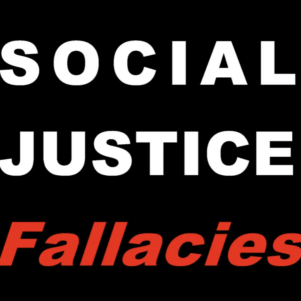The BLOG: Politics and Law
When does socialism become fascism?
Justin Katz | March 29, 2016
Explaining why President Obama’s policies are not, in general, socialist, but rather fascist, Thomas Sowell writes:
What President Obama has been pushing for, and moving toward, is more insidious: government control of the economy, while leaving ownership in private hands. That way, politicians get to call the shots but, when their bright ideas lead to disaster, they can always blame those who own businesses in the private sector.
To be particular, fascism is really an innovative subset of socialism that undermines the meager protections that socialism offers the public. After all:
Government ownership of the means of production means that politicians also own the consequences of their policies, and have to face responsibility when those consequences are disastrous — something that Barack Obama avoids like the plague.
Think the DMV, Rhode Island’s roads and bridges, or even Rhode Island public education. At some point, when the government is failing at a task that it has taken for itself, the public will hold it accountable. Making an intermediary of private businesses that are essentially contractors implementing the government’s edicts allows politicians to blame the middle man.
These ideas are abstract, though. To bring the lesson to nearby current events, consider two articles in today’s Providence Journal. The first concerns $3 million in losses that Memorial Hospital of Pawtucket says it incurs every month. Citing a variety of challenges, including “diminishing reimbursement rates” (from government and insurers), the hospital said in a statement:
“Despite our very best efforts, we find ourselves in the unpopular position of making difficult decisions. While we do not take the decisions lightly, we feel that they are imperative in order to give Memorial the best chance to survive.”
Unpopular is right. The hospital has been facing outcry in recent weeks over the decision to halt its obstetrical services. But if you’re wondering who’s really calling the shots, in Rhode Island, skip to the last paragraph:
“We are reviewing the details of Care New England’s proposal. As we do any time we receive a proposal to reduce or significantly change services at a hospital, we are following the proper processes, laid out in state law, to evaluate the potential impact on the community,” Elizabeth Roberts, secretary of Health and Human Services, said this week in a statement. “Our top priority is ensuring that Rhode Islanders have access to high-quality health and social services that are affordable and sustainable.”
So, government is applying distorting pressure on insurers and changing its own reimbursement rates and then gets either to pose as the savior, if the hospital is saved, or to wash its hands if regulators find that the hospital, or at least some of its services, simply cannot be saved.
The second related article is about Democrat Governor Gina Raimondo’s effort to give more power to change the system without General Assembly approval to her executive secretary of Health and Human Services Elizabeth Roberts (a central figure, by the way, in throwing Rhode Island’s healthcare system into turmoil with the great leap into Obamacare):
Although the exchange neared comedic, it turned on an issue that has become a sore point for many health-care service providers that have absorbed Medicaid cuts over the past year. The previous evening, hospital officials testified against cuts specified in the budget for the next fiscal year, which begins in July. …
A paragraph in Raimondo’s budget would give the secretary of the Executive Office of Health and Human Services power to “identify and implement fiscal controls within the overall budget… as needed, to achieve the full savings enacted in the FY 2016 appropriations act under the Reinventing Medicaid Initiative.”
What those controls might be isn’t exactly clear, but we can be sure that fewer hearings and fewer politicians in the mix will simply mean that the governor’s administration more easily imposes new rules that affect somebody in the chain, and then, if there are unforeseen consequences, Secretary Roberts will be happy to step in and make sure those greedy capitalists don’t get away with anything. And there’s simply no way the public, or even elected representatives, will be able to draw a chain of responsibility that is clear enough for the public to assign blame.
Justin Katz
Justin Katz is research director for the RI Center for Freedom & Prosperity and managing editor of OceanStateCurrent.com.






